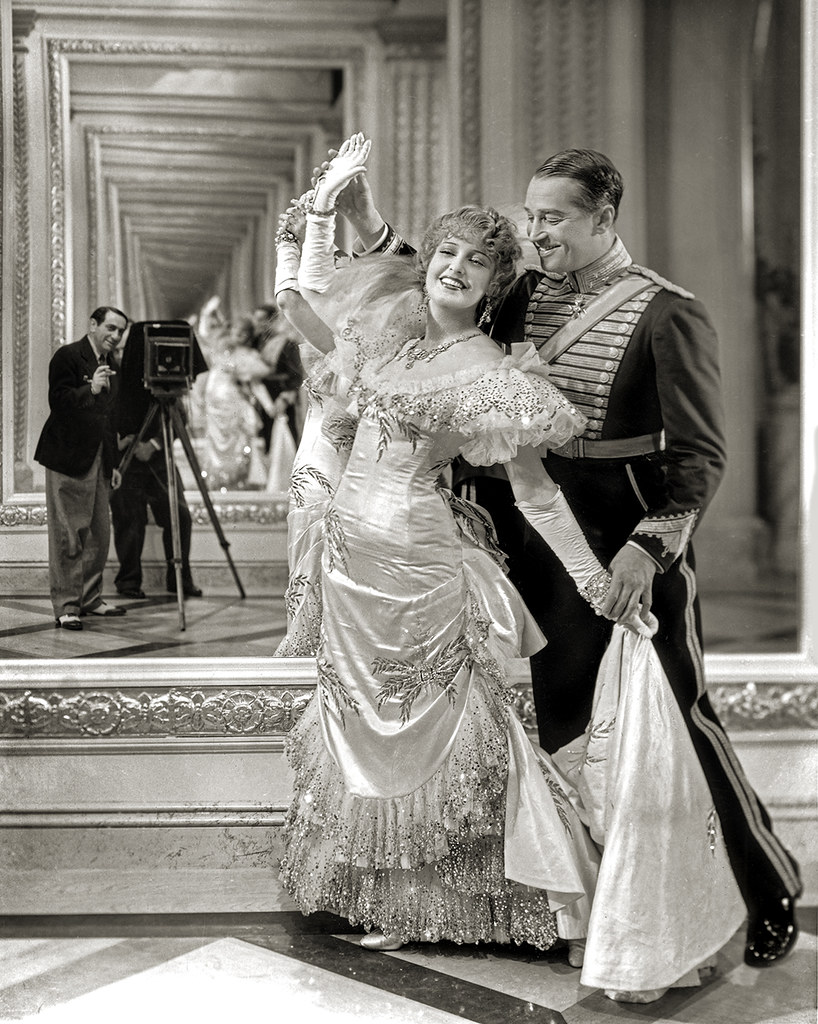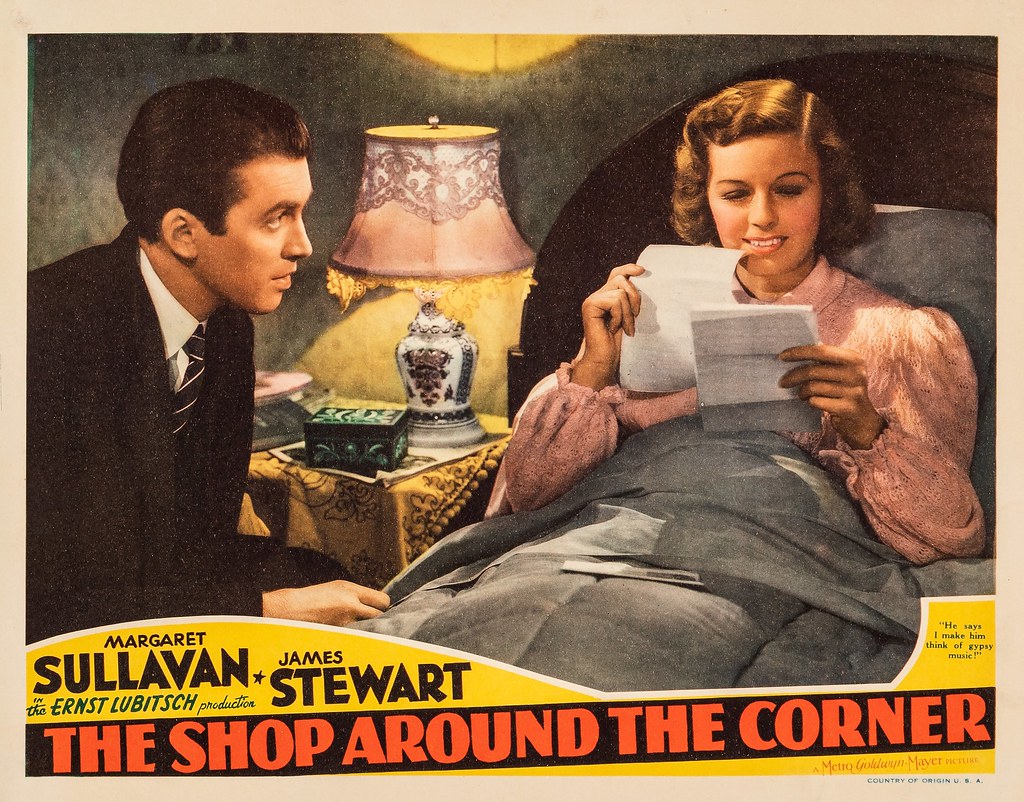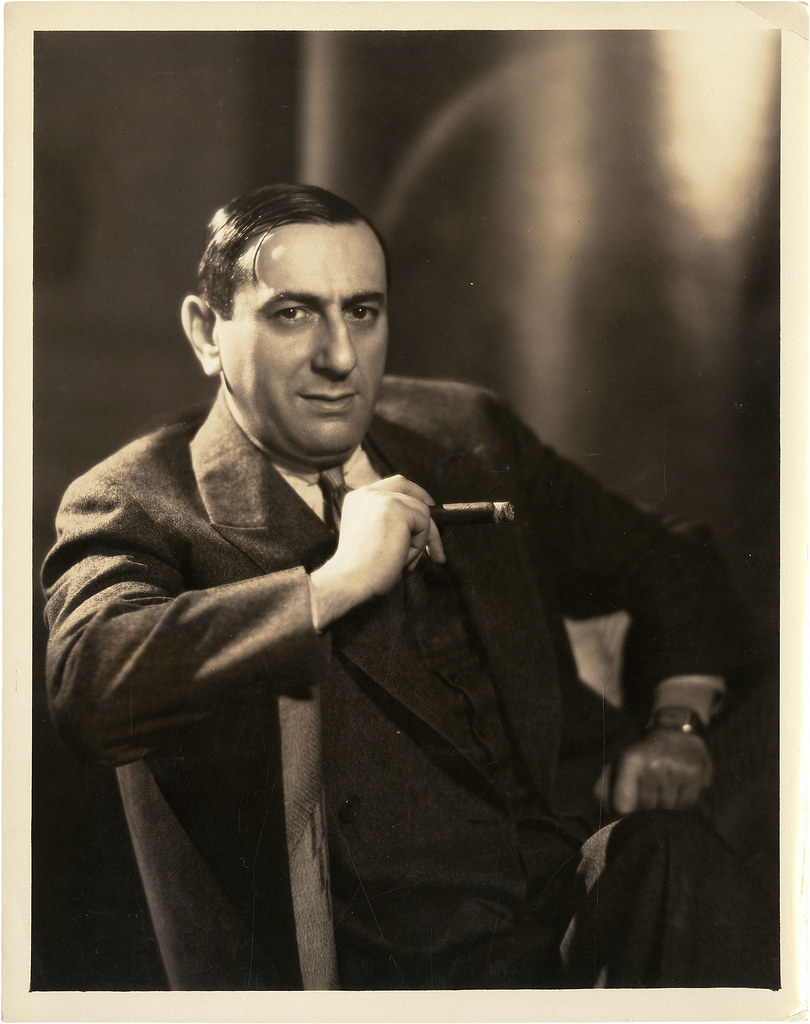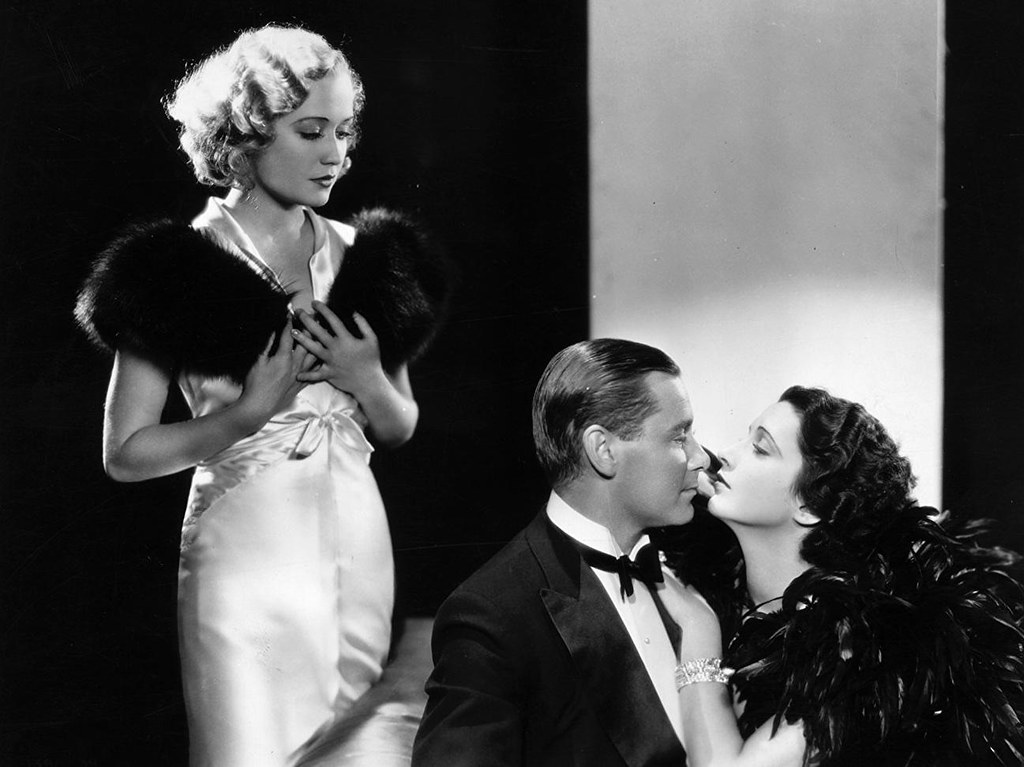“None of us thought we were making anything but entertainment for the moment. Only Ernst Lubitsch knew we were making art.” ~John Ford
The revelation as to what our theme would be in 2023 at the Park Ridge Public Library came rather late in our off-season. Last fall, I had revisited The Merry Widow starring Maurice Chevalier and Jeanette MacDonald, and I immediately considered a series on musicals as an excuse to play this film. But I realized, however, that it was The Merry Widow— as well as the earlier Chevalier/MacDonald teamings– that seemed to inspire me the most. I recalled how much I enjoyed seeing these films for the first time at the LaSalle Bank Theatre in Chicago in the mid-to-late 1990s.
But to do a decades-spanning look at Hollywood musicals wasn’t particularly appealing to me, primarily because half of them would play better across the street at the Pickwick Theatre. (If I’m going to play a grand MGM musical like The Band Wagon, for instance, I’d just assume play it at the Pickwick.) No, there had to be some other common denominator I could build a program on. Then one day it came.
“What about Lubitsch?” asked one of our film series regulars. John L. was suggesting a program on Ernst Lubitsch, the great German director who was behind all those early operettas I loved so much.
The fog seemed to lift the more I thought about it. His suggestion confirmed what I had already considered: why not profile the man behind the films? Ernst Lubitsch had certainly made enough great films (of several genres) to cover a three-month period. A comedy masterpiece like To Be or Not to Be would alone justify the series. But whereas the name Lubitsch once conjured up a legendary figure, eighty years later, it seems to evoke confusion and/or hesitancy. “Who was Lubitsch?”
For the older patrons I’ve spoken to who associate “German director” with another foreign film series, they are off course in terms of their expectations. The younger generation, on the other hand– some of whom I’ve met and want to be filmmakers themselves– might not place the name at all. To this group I say, if you don’t know Lubitsch, you don’t really know film. (No one under 30 that I’ve met can name one Lubitsch film, and yet, there are film teachers out there doing courses on people like John Hughes. Thankfully, there is a Park Ridge Public Library Classic Film Series.)
“Who was Lubitsch?” We will answer that question in detail every Thursday night this spring when the Park Ridge Public Library Classic Film Series returns for its 13th season. The Lubitsch Touch will profile the life and career of Ernst Lubitsch (1892-1947)— easily one of the most respected filmmakers of the 20th century. Orson Welles once called him “a giant” whose “talent and originality are stupefying.”
Ernst Lubitsch’s physical appearance belied the magnitude of his talents. He was a short, German-Jew with a heavy Berlin accent and an ever-present cigar. Though an actor himself in Germany, Ernst Lubitsch never possessed what one might call “leading man good looks.” In the 1910s, he played in comedies that showcased ethnic humor. Eventually, he gave up acting for directing and became the European version of America’s D.W. Griffith, a director of historical spectacles. It’s this reputation that caught the attention of silent star Mary Pickford, who brought him to America for his film debut.
He was an actor’s director, and many stars loved working with him. They loved his sense of humor, the way he acted out all the parts in his own inimitable way during rehearsals. When Lubitsch wasn’t working with the actors, he could be seen near the set playing a piano while the production crew set up the next scene. He lived for the next shot, the next movie. The cinema was his life, and Paramount Pictures was his home.
Audiences at the Park Ridge Public Library will see an evolution in the career of Ernst Lubitsch. In his early Hollywood period, he made wonderful films out of seemingly inconsequential stories. A gossamer of a plot hung over some of his most charming, witty films. By his later period, however, he was more a humanist whose story-lines had become what critics might call “important.” He had something to say about relationships and the world at large. Of course, he did so in his early films as well, but story wasn’t everything. For Lubitsch, form was more important than content. His films in the early 1930s were certainly more flamboyant (Trouble in Paradise) than the films of the 1940s, which tended to have a subdued sense of decor (Heaven Can Wait).
Our three-month program will cover Ernst Lubitsch’s post-Germany career, beginning with his first American film, Rosita (1923), on March 2. This Mary Pickford silent epic, in which she plays a street singer whose lyrics upset the king, will be presented with a special (digital) organ accompaniment by Jay Warren at 7 PM. Besides honoring the film’s 100th anniversary, we are also presenting a film that is rarely if ever screened.
Lubitsch made his mark in the early sound era with the musical genre, and we’ll have all his best starring Maurice Chevalier and Jeanette MacDonald. The culmination of which will be a screening of the comic operetta The Merry Widow (1934) on April 13. It’s a film set in a mythical kingdom of beauty and elegance, champagne and waltzes!
The Merry Widow (1934): Lubitsch is seen in the background.

Lubitsch found clever ways to work around censorship, and we’ll have the pre-Code films such as the scintillating and amoral Trouble in Paradise (1932) on March 30, which was one of our biggest hits when we played it in 2010. Design for Living (1933), on April 6, features a ménage à trois with Miriam Hopkins, Gary Cooper and Fredric March. Though we’ve presented many comedy programs over the years, this time we delve into a more sublime, sophisticated realm of humor. Lubitsch was a master of sly innuendo, and he never told his stories in an obvious way. It’s these qualities that give his films their special touch.
The Lubitsch Touch offers some of the biggest stars of the day. Greta Garbo laughs in Ninotchka (1939) on April 20. James Stewart and Margaret Sullavan are bickering coworkers (and unknowing pen pals) in the beloved The Shop Around the Corner (1940) on April 27– perhaps Lubitsch’s best known film. And there is To Be or Not to Be (1942) on May 18, Lubitsch’s war-time black comedy starring Jack Benny and Carole Lombard (in what proved to be her final film). This film is almost never shown, but we were fortunate to get the rights to screen it. The series will conclude with our only color film, Heaven Can Wait (1943), starring Gene Tierney and Don Ameche.
For anyone who loves the movies—or dreams of making them—this series is a must. Lubitsch’s films remain modern and far more sophisticated than anything on movie screens today. Leave your streaming “content” behind and join us Thursday nights for films that are genuine art… Who was Lubitsch? Simply put, Lubitsch was cinema.
March 2: Rosita (1923) w/musical accompaniment by Jay Warren
March 9: The Love Parade (1929)
March 16: The Smiling Lieutenant (1931)
March 23: One Hour with You (1932)
March 30: Trouble in Paradise (1932)
April 6: Design for Living (1933)
April 13: The Merry Widow (1934)
April 20: Ninotchka (1939)
April 27: The Shop Around the Corner (1940)
May 18: To Be or Not to Be (1942)
May 25: Heaven Can Wait (1943)
The Shop Around the Corner trailer with an appearance by Ernst Lubitsch!

NOTE: All classic film presentations start at 7 PM with an introduction by program host Matthew C. Hoffman. Doors open at 6:30 PM. Bonus material will be shown prior to 7 PM. Free, no registration required.
~MCH


